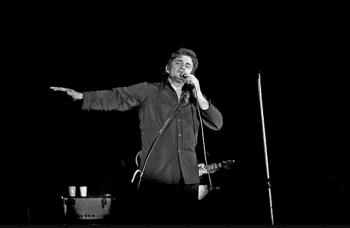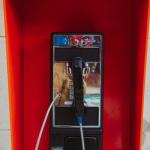
Everyone has had moments where they wanted to disappear for a while. Life’s problems are too much to bear, so we think disappearing will improve everything. Those were Johnny Cash’s thoughts when he walked into Nickajack Cave in 1967.
In “Johnny Cash: The Redemption of an American Icon,” a documentary detailing Cash’s inspirational story based on a book of the same title by Pastor Greg Laurie, we learn that Johnny went through a lot in 1967 and the years prior. His rocket to stardom was everything he wanted, but it came with things he didn’t expect. Cash loved performing but thought that life on the road was boring. During one tour, another musician gave Cash a pill, amphetamine, to keep him going, and Cash called the drug a “God send.”
Cash would eventually become addicted to amphetamines and alcohol, drinking between 12 and 14 beers daily. The drugs made him forget things, so Cash started missing shows. Cash called it a scatterbrained period because his health was deteriorating, and his music wasn’t charting. Cash said he would stop taking the pills for a short time, but he started feeling bad again, so he started the drugs again.
He was arrested in 1965 for drugs, going through a divorce, and missing shows. He also broke out the lights at the Grand Ole Opry and burned down trees in California by setting a car on fire. Overall, Cash felt like his life was going in a downward spiral.
While visiting Chattanooga, Tennessee in 1967, Cash took a trip to Nickajack Cave with a flashlight and said we would go in the cave for as long as the flashlight would burn. His intention in visiting the cave was to commit suicide; Cash was exhausted, so he laid down his life and gave up everything. According to Cash, he lay there to die. Instead, he woke up and realized where he had put himself and the mess he had created.
At that moment, Cash heard God say that He wasn’t done with him yet, showing Cash a way out of the cave. Cash’s flashlight burned out, but God’s light led him out of the cave. Sheryl Crow said that Cash came out of the cave with the desire to get right with God, while Greg Laurie compared it to the biblical story of Elijah. At that moment, Cash decided to turn his life around. June Carter offered to help him kick his addiction along with others in his support group.
Cash promised his band that he would clean up his act and rededicated his efforts toward Christianity. 1968, Cash recorded At Folsom Prison because he wanted the prisoners to know someone cared about them. The prisoners felt they could relate to Cash, and he was one of them. After leaving Nickajack Cave, Cash remained dedicated to giving his life to Christ and not returning to his former patterns.
This Johnny Cash story should remind all of us that, yes, we will fall sometimes. However, getting back up with God’s love and care is possible. Johnny Cash should remind us that we will have dark moments, but God is always there, ready to lead us back to the light.


